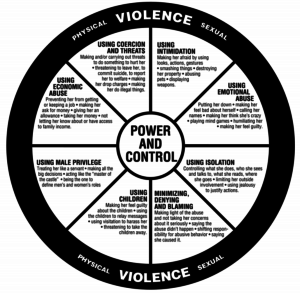How Trauma Therapy Can Help with the Avoidance of Pain
We have all stubbed a toe or sprained an ankle, gotten bitten or sunburned at some point in the last month. The instant ouch, the resounding throb, and tender joints for days are common for most ordinary people, and the more extreme and active you are, the more likely those will become.
Most of us have also eaten a new delicacy or old favorite, and gotten sick enough to throw it up due to food poisoning, and in future days, months, even decades for some, become so averse to the food, we completely avoid it.
Emotional Pain
Sometimes emotional pain caused by mistreatment while a child, difficult, frightening and uncontrollable things, feeling physical pain above the threshold of toleration, or being inappropriately touched or betrayed by someone, can make our bodies and minds respond similarly, just like becoming averse to food, or nervousness about playing that sport again in case your ankle might hurt again.
We are instinctively averse to things that cause us pain. A conversation about healthy fear versus unhealthy fear and healthy stress response and unhealthy stress response is valid. But for now, we can assert it is true that a powerful force in our mind prompts us to take special note of pain and quickly choose options to deal with it somehow.
Some of the ways we deal with emotional pain are suppressing our feelings, addiction, denial when it comes up, walling ourselves off from more pain or situations, fantasy and daydreaming, and other kinds of avoidance.
What we get from these are anxiety, a feeling of lurking feelings underneath the surface, and hopeless, cynical, antisocial, or isolative behavior. The problem with these is that none of them deal with root causes. All of them look to reduce or avoid symptoms.
Broken Cisterns
In Jeremiah 2:13, God tells the prophet Jeremiah about his people Israel: “For my people have committed two evils: They have forsaken me, the fountain of living waters, and hewed out for themselves cisterns, broken cisterns that can hold no water.”
We can see a parallel to the broken cisterns that can hold no water, to those instances of avoiding pain, our rushed way of acting, but not getting to the root solution. Historically, cisterns were reservoirs or wells that would be built to hold and contain water. God used this metaphor to point out to His people that certain avenues and choices will never truly satisfy and comfort us or support us with the right provision of healing.
Ice cream is great for celebration, but not great for reducing the pain of rejection from people. Leaving in a hurry and swearing at someone to get away might be useful if being chased by an assailant, but not if you need to work a thorny issue with a family member. There is a reason and a season for things that make something an applicable or not-so-applicable choice to cope. The same goes for emotional, mental, and spiritual pain.
What is trauma therapy?
Let’s now take this philosophical topic and distill it to the psychological topic you came here for; how trauma therapy (“trauma” being the Greek word for wound, and so trauma therapy is the attending to the wound) can intersect with pain and help the sufferer face it and cope with it in the right way.
For nearly every theory proposed, tested, and verified in modern therapy, some theorists looked at basic questions like what unhealthiness is, what healthiness is, and useful thinking and feeling, and what is the vehicle of change to go from unhealthy to healthy.
Many theorists looked long and hard at how pain, wounding, fear, and negative habits of the past shaped people’s decision-making, defense mechanisms, and worldviews. They also proposed what they believed were common traits of healthy thinking, responses, and outlooks, and then went to work to derive hypotheses and develop interventions that could become vehicles of change toward healing in some way.
Some looked at reducing the pain and negative symptoms, while others looked at becoming more flexible and accepting negative feelings, and changing one’s outlook about them.
Types of Trauma Therapy
Trauma-Focused Cognitive Behavioral Therapy
For example, TFCBT (trauma-focused cognitive behavioral therapy), which is an evidence-backed theory for how to help children and teens experiencing symptoms of post-traumatic stress, has a particular understanding of trauma and how to heal.
The theory lays out an eight-step protocol that starts with educating caregivers about trauma, teaching relaxation skills for a body wracked by trauma, acknowledging emotions around pain and loss for kids, helping enhance adaptive thinking about events, thoroughly describing events through one’s narrative and then incorporating these skills into day-to-day life with the help and support of a support network.
According to this theory, you must come face to face with the wound and address it in trauma therapy, learning new ways to calm the body, understanding the normal mental reactions to trauma, making sense of it, and beginning to readjust to living in the presence of or in the wake of a painful event.
Dialectical Behavior Therapy
Another evidence-based method is called Dialectical Behavior Therapy, which is effective for individuals experiencing big overwhelming feelings in relationships, outbursts, and/or addictions, and also looks to address suffering and the conditions that drive us to act in unwanted ways.
“Radical Acceptance,” a sub theory in this method, suggests that until we wholly accept that a trauma or a wrongdoing occurred in all its detail, we will get stuck in suffering, thinking about why or why not, and why me. While not accepting what happened is understandable initially, over time, it becomes problematic.
 The answer this theory offers, is to hold our emotions hand-in-hand with logic and cold hard realities, and find a middle ground of wise behavior called “wise mind” thinking, which listens to the feelings, needs, and urges of the emotional side and balances them with acceptance of fact, to synthesizes them into a new, more adaptive way of thinking. In this theory, neither trying to medicate away feelings nor accepting reality without feeling would benefit healing.
The answer this theory offers, is to hold our emotions hand-in-hand with logic and cold hard realities, and find a middle ground of wise behavior called “wise mind” thinking, which listens to the feelings, needs, and urges of the emotional side and balances them with acceptance of fact, to synthesizes them into a new, more adaptive way of thinking. In this theory, neither trying to medicate away feelings nor accepting reality without feeling would benefit healing.
Acceptance And Commitment Therapy
Yet another evidence-based theory called Acceptance and Commitment therapy was based on its founder, Steven Hayes’ experience of having his panic attacks get worse the more he tried to avoid the panic he felt in those moments.
He came to realize that befriending the fearful thoughts, recognizing they were a part of him but not him in totality, and reminding himself of his values and desired path of life that he was committed to, even amid that pain, helped him come out the other side. Flexibility came when there was more than just one way to handle pain, so that he could accept it, and move on, learning along the way and staying true to his beliefs.
12-Step Groups
Lastly thinking of all 12-step groups which have been proven effective over many decades, acknowledging pain and the past, not shutting the door on it, and committing to a plan of action with steps that improve your relationship to yourself, to God and other people, has assisted millions of addicts twisted by avoidance of pain become people reforming into witnesses to their pain but in recovery toward wholeness as recovering addicts.
The Common Factor
What do all these approaches have in common? They don’t advocate avoiding pain in the healing process; they offer strategies to heal through the moments and seasons with pain in it, with acceptance, a different vision, and tools to emerge resilient and more of yourself than you would be if merely avoiding pain.
And still, I want to escape. I still want to escape pain, sadness, and wounding. I want to throw my hands up and ask, “Why?” And that’s okay – it’s human. But the question is whether I can refocus after I acknowledge the real pain I feel so that I can recover.
Bringing back the theological aspect, what might be God’s desire for my handling of this situation? Do we believe that God works all things into our lives for a reason to yield a certain result, if not desiring pain, at least allowing it?
Tim Keller, a renowned late pastor and writer, shared about a time he talked with a psychiatrist friend of his who was feeling stuck in a rut with his psychiatric training. He said one day he looked at his massive textbook and asked, “What if I read this textbook for Christ?”
Suddenly, the friend said, he was thirsty to learn, compare, make connections and insights for treatment out of a sense that he was learning for Christ, thus the fulness of his work was coming out of his response to the question “What if there is more to this textbook than a textbook?”
What if there is more to pain than pain? Keller also goes on in other sermons to describe how the secularized post-modern Western world has precious few resources for explaining, dealing with, and enduring distress. Since, in most of Western culture, pain is meaningless, it should be avoided as an ultimate evil, right?
Christ, as detailed in the Gospels, gave another view. That there “will be trouble” in the world, that pain and sin are inevitable, but that we should ask for deliverance from them at the same time.
As the Serenity Prayer (credited to a 1920’s German preacher Reinhold Niebuhr and read at many 12 step groups around the world) says, the prayerful person asks to start “Accepting hardships as the pathway to peace; Taking, as Jesus did, this sinful world as it is, not as I would have it; Trusting that He will make all things right if I surrender to His will; That I may be reasonably happy in this life and supremely happy with Him forever in the next.”
Trauma Therapy Reconsidered
Let us synthesize all of this. In the theology of pain and the healing therapies, we see both a universal issue and helpful ways through it. Be it Dialectical “Radical Acceptance,” CBT reorientation and resilience in facing hard things, or the twelve steps of becoming willing to accept a new path rather than the old one of avoidance and addiction, we see a strange, foreign theme emerge.
This theme is in contrast to avoiding pain and distress at all costs, which the world and our instincts ironically tell us is unavoidable. It is a theme of not clearing out from pain, but grasping it, acknowledging hardship and caring for ourselves in the midst of it, and taking the world as it is, not as we would have it, because that avoidance – that wishing for an alternative reality – keeps us in more pain and bitterness.
One last spiritual picture: If you are not familiar with the story of Job, it is a biblical account that starts with Satan coming to God and requesting to make life difficult for one of God’s chosen people, a blameless and upright man named Job. Satan, the accuser, tries to prove to God that Job, faced with stress, insult, fear, and pain, will surely curse God and not act blameless, for Job was only trusting God (said Satan), because of God’s kindness and material blessings.
What we see instead is a man who endured pain, but cried out to God in anger, but the key phrase is that he cried out “to God.” Job was a man who, though he experienced the pain, remembered to fix his eyes on God, and had faith that God can take our experience and raw expressions of pain and can provide healing and strength through it, not around it.
And the three therapies and the 12-step philosophy listed above all touch on different ways of bearing up underneath the burden of pain in this same way, attending to it rather than avoiding it.
Photo:
“Napping”, Courtesy of Daniel Martinez, Unsplash.com, Unsplash+ License



 I can hear you on the other side asking, “Why me?” and “Why am I experiencing this?” And I’m with you on this one. Why you? No one deserves to be mistreated or abused in any way, especially mentally. If you’re looking for support,
I can hear you on the other side asking, “Why me?” and “Why am I experiencing this?” And I’m with you on this one. Why you? No one deserves to be mistreated or abused in any way, especially mentally. If you’re looking for support,  If you didn’t catch it, the word is reframing our mind right there. God wants us to think. I don’t like thinking too much myself, but I know that this mental warfare is a real thing. It’s easier for us to veg out in front of the television. It’s simple to move on to the next thing and try to forget our past hurt.
If you didn’t catch it, the word is reframing our mind right there. God wants us to think. I don’t like thinking too much myself, but I know that this mental warfare is a real thing. It’s easier for us to veg out in front of the television. It’s simple to move on to the next thing and try to forget our past hurt. It’s time for us to take back our minds and not lend them to these negative thoughts from our past to control us. Some forms of psychological trauma include verbal abuse, domestic violence, sexual assault, stalking, racism, etc. These leave an imprint in our minds that is hard to forget.
It’s time for us to take back our minds and not lend them to these negative thoughts from our past to control us. Some forms of psychological trauma include verbal abuse, domestic violence, sexual assault, stalking, racism, etc. These leave an imprint in our minds that is hard to forget. What surprises me is that the people didn’t have to even touch him physically! They didn’t have to hold his hand; they didn’t need to hug him or have him touch their foreheads to show some form of connection. They must’ve had so much reverence for him that in those times that wasn’t considered permissible – perhaps because it would’ve been disrespectful.
What surprises me is that the people didn’t have to even touch him physically! They didn’t have to hold his hand; they didn’t need to hug him or have him touch their foreheads to show some form of connection. They must’ve had so much reverence for him that in those times that wasn’t considered permissible – perhaps because it would’ve been disrespectful. Experiencing a “traumatic event” is something many people have to cope with — and there is a range of situations that can be labelled as “traumatic events.” Trauma is often described as being both a physiological and a psychological wound. When we perceive a threat to our lives or experience a threatening situation, or witness serious harm occurring to another person, our response is one of being traumatized.
Experiencing a “traumatic event” is something many people have to cope with — and there is a range of situations that can be labelled as “traumatic events.” Trauma is often described as being both a physiological and a psychological wound. When we perceive a threat to our lives or experience a threatening situation, or witness serious harm occurring to another person, our response is one of being traumatized. Trauma Informed Care, therefore, isn’t only beneficial for people who have experienced the more obvious kinds of trauma. Rather, it can help anyone – because one of the biggest challenges when seeking out counseling is finding someone that you feel will understand your issues more deeply than just the surface level. The focus on empathy in trauma informed care is a huge benefit.
Trauma Informed Care, therefore, isn’t only beneficial for people who have experienced the more obvious kinds of trauma. Rather, it can help anyone – because one of the biggest challenges when seeking out counseling is finding someone that you feel will understand your issues more deeply than just the surface level. The focus on empathy in trauma informed care is a huge benefit. Trauma Informed Care helps to build a greater level of resilience by treating the whole person. Understanding past trauma and the way that you respond to and handle trauma is an important part of the process. Trauma Informed Care respects where you are on the journey toward recovery and meets you where you are – removing the need for you to pretend that you’re doing better than you are. This is essential for healing.
Trauma Informed Care helps to build a greater level of resilience by treating the whole person. Understanding past trauma and the way that you respond to and handle trauma is an important part of the process. Trauma Informed Care respects where you are on the journey toward recovery and meets you where you are – removing the need for you to pretend that you’re doing better than you are. This is essential for healing. God reaches out to us in the moments when we are feeling the most desperate. In Isaiah 41:10, he says, “Don’t be afraid, for I am with you. Don’t be discouraged for I am your God. I will strengthen you and help you. I will hold you up with my victorious right hand.”
God reaches out to us in the moments when we are feeling the most desperate. In Isaiah 41:10, he says, “Don’t be afraid, for I am with you. Don’t be discouraged for I am your God. I will strengthen you and help you. I will hold you up with my victorious right hand.”

 Domestic abuse does not always happen how you might think. It can start small and build up from there. Often, abusers choose kind-hearted, empathetic victims whose very strengths are used against them. The victims are then manipulated into a life of submission to a controlling, abusive partner.
Domestic abuse does not always happen how you might think. It can start small and build up from there. Often, abusers choose kind-hearted, empathetic victims whose very strengths are used against them. The victims are then manipulated into a life of submission to a controlling, abusive partner. This keeps the victim confused and off-balance. She might think that the latest abusive incident is the last one. She might think it’s her fault, which he would like to convince her of, especially if she responds emotionally or angrily to his treatment of her.
This keeps the victim confused and off-balance. She might think that the latest abusive incident is the last one. She might think it’s her fault, which he would like to convince her of, especially if she responds emotionally or angrily to his treatment of her. Assessing the safety and risks is the important factor. Once a woman begins to make efforts to change the relationship or to leave the situation, the risk of violence increases exponentially. Making a safety plan is paramount if you believe there is even the slightest risk of violence.
Assessing the safety and risks is the important factor. Once a woman begins to make efforts to change the relationship or to leave the situation, the risk of violence increases exponentially. Making a safety plan is paramount if you believe there is even the slightest risk of violence.